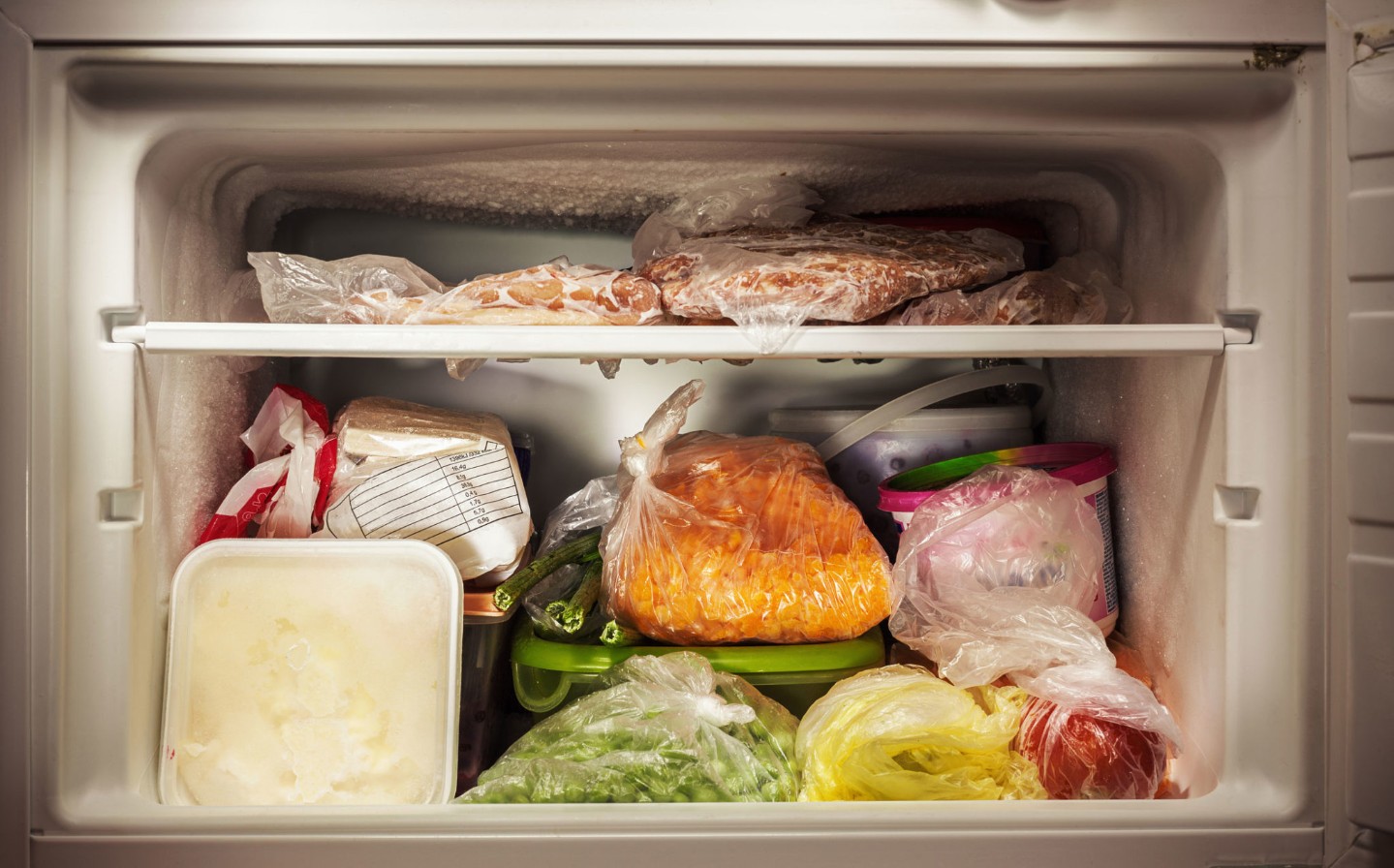Beyond the Chill: Understanding Raynaud's Phenomenon
JAN 29, 2026Raynaud's phenomenon is a rare disorder that affects the blood vessels, most commonly in the fingers and toes, but sometimes also in the nose, ears, or lips.
Read More
Should I buy this? Can I eat that? What if I freeze it? When do I just throw everything out? We don’t like to waste good food, but many of us are unsure how long to safely store foods prior to tossing them away. The following guidelines should lessen the challenge of these decisions in the future.
The longevity of a food item is first critiqued at the store by appropriately interpreting the dates provided. Common terms are defined as follows:
Appropriate food storage is the best way to maintain both food quality and food safety. Always store items according to package directions to avoid bacterial growth or other spoilage. Refrigerator temperatures should be maintained below 40°F and freezer temperatures below 0°F. For food without a “use by” day follow the guidelines in the remainder of this text.
MEAT AND SEAFOOD
Eat or freeze fresh meats (raw, or cooked) within 3 to 5 days and cured ham within 5 to 7 days. A few exceptions to this rule include poultry, ground meats, and sausage (all varieties), which should be stored for only 1 to 3 days. Frozen seafood should be discarded if the expiration date has passed or the product has been previously thawed as indicated by ice crystals.
Processed foods sealed at purchase should be used or frozen within the time frames below as adopted from the United States Department of Agriculture (USDA).
| Processed Product | Unopened, after purchase | After Opening |
| Cooked poultry or sausage | 3 to 4 days | 3 to 4 days
|
| Corned beef, uncooked, in pouch | 5 to 7 days | |
| Vacuum-packed dinners | 2 weeks | |
| Sausage, hard/dry, shelf-stable | 6 weeks | 3 weeks |
| Bacon or hot dogs | 2 weeks | 7 days |
| Luncheon meat | 3 to 5 days | |
| Fully cooked ham | 7 days | Slices -3 days
Whole- 7 days |
| Shelf stable ham | 2 years | 3-5 days |
| Shelf stable, canned meat and poultry | 2 to 5 years | 4 to 5 days |
DAIRY
Discard all milk within one week of opening, regardless of the sell-by date. Yogurt should be consumed within 7 to 10 days from the sell-by date. Ice cream will maintain quality for 2 to 4 months but may be safely consumed following per your palate. Hard cheeses and cheese spreads will generally last 3 to 4 weeks in the refrigerator or may be placed in the freezer with an anticipated decrease in quality. Softer cheeses have a shorter shelf life, with cream cheese acceptable for about 2 weeks, cottage cheese 10 to 30 days, and ricotta cheese lasting only about 5 days.
EGGS
Raw eggs may be kept in the refrigerator for 3 to 5 weeks while hard-boiled eggs should be consumed within one week. Eggs are best kept within their original carton and will decline faster with exposure within the refrigerator door egg tray.
LEFTOVERS
Leftovers should be transferred to small shallow containers to encourage efficient cooling. Date all leftovers and use within 4 to 7 days. Discard any items left unrefrigerated for more than two hours.
You may freeze almost all foods indefinitely to maintain nutrition and avoid spoilage, however, quality will decline over time. If you are unsure or suspicious of any food items follow the rule of thumb “when in doubt, throw it out.” Plan ahead, be safe, and eat well!

Raynaud's phenomenon is a rare disorder that affects the blood vessels, most commonly in the fingers and toes, but sometimes also in the nose, ears, or lips.
Read More
Winter brings beautiful snowy landscapes and cozy evenings, but the cold, dry air—indoors and out—can be harsh on our hands, leading to dryness, cracking, and even more serious issues like frostbite. Protecting your hands is crucial for comfort and s...
Read More
While BMI can be a useful screening tool for populations, relying solely on this single number to define an individual's health and dictate weight management strategies is outdated and often misleading.
Read MoreWhen you need local health information from a trusted source, turn to the CHI Health Better You eNewsletter.